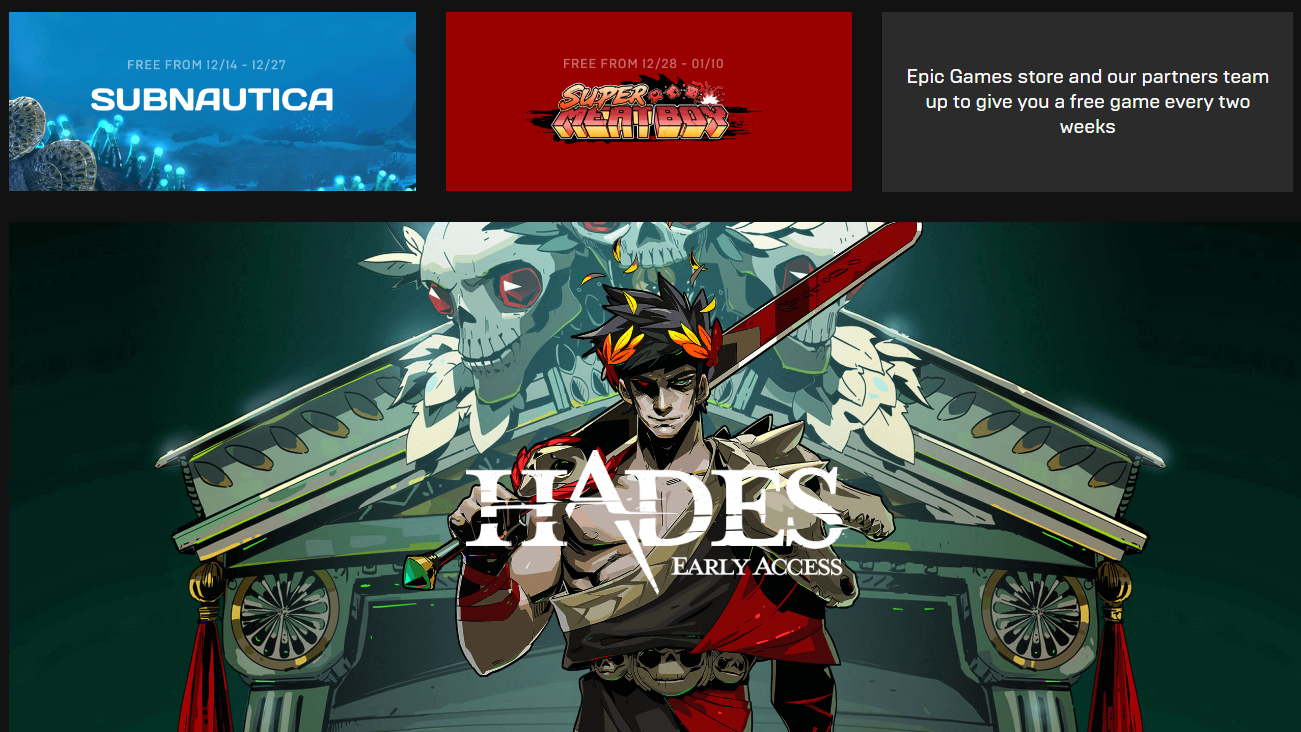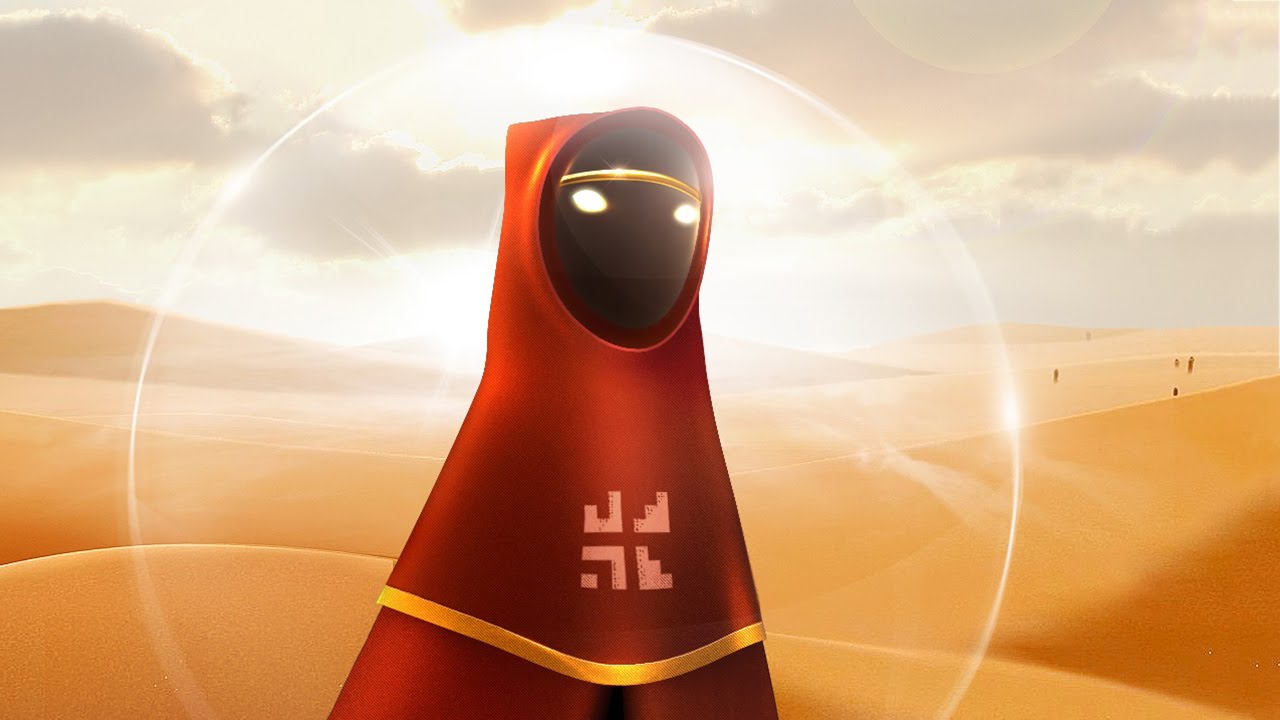How the Epic Games Store compares to Steam right now
One month in, how is Epic's attempt to compete with Steam faring?

Origin and Battle.net are nice enough vacation spots, but for over a decade, Steam has been PC gaming's de facto hub town. Valve has left us wanting at times, but we've grown fond of Steam's endlessly growing stock of games, its community and multiplayer features, and its seasonal discount sprees.
There are other PC game distributors, but none that have really challenged Steam. Yet when Fortnite became a phenomenon in 2018, Epic was emboldened in a way we didn't predict. The Epic Games Store, which it launched late last year, is unlikely to replace Steam anytime soon, but it won't be for a lack of trying, or money.
Right now, Epic is attracting developers to its new store with a more favorable revenue sharing scheme and attracting users with free games and exclusives, but the store itself remains barebones. After a month, here's where Epic's store stands, and what we expect as 2019 moves along.
Games, freebies, and exclusives on the Epic Store
The Epic Store currently hosts about two dozen games, some unreleased, and some that will be exclusive to the platform for 12 months or longer, such as Journey, Maneater, and Satisfactory (which we're really looking forward to). It's also giving away free games throughout the year. Currently, What Remains of Edith Finch and the Jackbox Party Pack are available to pick up at no cost.
Here's what the Epic Store offers right now, including unreleased games:
Epic-published games
Epic Store timed exclusives
Keep up to date with the most important stories and the best deals, as picked by the PC Gamer team.
- Ashen
- Hello Neighbor: Hide and Seek
- Hades (early access)
- The Walking Dead: The Final Season (except for those who already purchased it on Steam)
- The Division 2 (will also be available on Uplay, but not Steam)
- Super Meat Boy Forever
- Rebel Galaxy Outlaw
- Maneater
- Journey
- Genesis: Alpha One
- Satisfactory
- World War Z
Other games
- Outer Wilds (unclear if Steam and Epic Store launches will be simultaneous)
- My Time at Portia
- Donut County
- Gorogoa
- Darksiders 3
- Subnautica
- Super Meat Boy
- What Remains of Edith Finch (currently free)
- The Jackbox Party Pack (will be free starting January 24)
Epic's latest deal will bring The Division 2 to the platform, and while Ubisoft's shared-world shooter will also release on Uplay, there are "no plans" to bring it to Steam.
That's a big deal, as along with CD Projekt and 2K (for now), Ubisoft has been one of the last big-publisher Steam holdouts. EA ditched it. Activision ditched it. Bethesda ditched it with Fallout 76. Blizzard never needed it. But with Uplay unable to gain quite the same purchase as Origin and Battle.net, Ubisoft hung on until Epic offered an alternative.
Should The Division 2 find success on the Epic Store, should we expect Ubisoft to make similar deals for its other games? Will 2019's Assassin's Creed release on Steam? That's a question for the first time.

How will future games get on the Epic Store?
Though it's scored some big games, Epic's library is miniscule compared to Steam's 30,000 games—the Epic Store isn't a place to discover new games, rather somewhere to purchase and play games we've already heard about.
From what we've heard, that's intentional, but while Epic's offerings are "hand-curated" so far, the company does plan to "open up more broadly to other games and to Android and other open platforms throughout 2019."
Given Epic's young-skewing Fortnite audience, I highly doubt that means it will adopt Steam's 'anything goes' policy. Hentai puzzle games will probably remain Steam's domain, then, while Epic takes a more hands-on approach to filling out its library. We'll find out more as the year progresses.
The Epic Store's current features
The Epic Games Store launched with four functions: look at a game, buy a game, download a game, and play a game. There's also a friends list, to be fair, but that's about it. When installing a game, it doesn't even tell you how much space the game requires, or how much space is available on your selected drive, and the lack of forums prompted some of those who picked up Subnautica when it was free to venture over to the Steam forums for technical support.
Just to make the point more emphatically, here's a comparison of Steam and the Epic Store's features as of right now:

I could make an even bigger spreadsheet, but you get it: Steam has added feature after feature over the past decade and more, whereas Epic launched its store with just the basics.
This is, in part, because Epic hasn't finished building the store, but it does seem to prefer a clean and simple design. In the announcement post, it promised "no store-placed ads or cross-marketing of competing games" on game pages, for instance.

Features planned for the Epic Store
On a Russian podcast which was summarized by ResetEra user daxy, Epic Games director of publishing strategy Sergey Galyonkin discussed future additions including customer reviews, cloud saves, achievements, and social features. On Twitter, Galyonkin called daxy's summary "incorrect," but didn't contradict the post. My request for clarification from Epic has not been returned, so the summary and the tweets are mostly what we have to go on for now.
The overall suggestion from Galyonkin's comments, both on Twitter and in the podcast summary, is that Epic doesn't want to replicate Steam's problems with identical features. "For example, forums were revolutionary 20 years ago, but right now there are better tools to have discussions online," wrote Galyonkin on Twitter. "Reddit, Quora, even Twitter allow for both threaded discussions and upvotes/likes. I’d rather have something like that than an old-fashioned message board."
...Forums were revolutionary 20 years ago, but right now there are better tools to have discussions online.
Sergey Galyonkin
Based on all of Galyonkin and Epic founder Tim Sweeney's comments, we can expect user reviews—which will be opt-in for developers, according to Sweeney—user profiles, cloud saving, offline use (confirmed for early 2019), and other basic features to appear over the next year. I also expect to see basic usability improvements, such as, say, showing us how big the game we're installing is. Epic rapidly iterated on Fortnite, and had it not, there would likely be no Epic Store. In theory, it can apply the same energy to its store.
Epic hasn't added much as of yet, though it has updated its refund policy to be in line with that of Steam's, which is a start. There's a ton of room to improve.

What's Epic's cut of game sales?
To encourage adoption at this early stage in its life, Epic is offering free and exclusive games. To get developers on board, it's undercutting Steam's revenue take.
Where Steam takes 30 percent of the revenue from on-platform game sales, Epic will only take 12 percent, and will also cover the 5 percent Unreal Engine royalty fee for games that use it. By calling this "fair economics," Epic isn't being subtle in its message: Valve is greedy, Epic is your friend.
It bears mention that, while Steam does take 30 percent of on-platform sales, it also allows developers to generate game keys and sell them to other retailers, such as Humble, or directly to players, bypassing the cut. And, on top of its in-store discovery efforts (some more successful than others), Valve provides a massive userbase and the Steamworks API which helps handle multiplayer matchmaking, microtransactions, achievements, cloud saving, mod distribution, and so on.
Right now, Epic doesn't offer much at all, and plans to aid developers in marketing not primarily by developing in-store features, but by providing a framework for sharing revenue with influencers, as described below.
What's all the influencer stuff about?
When it comes to helping players find games they want to buy, Steam has focused its efforts on in-store discovery: its recommendation engine shows us games similar to ones we already play, games from publishers we've purchased from before, and games our friends our playing, and Steam Curators provide human-managed lists of recommendations. The Epic Store is currently just a list of games in a staggered grid.
In-store discovery isn't as important to Galyonkin as influencers (streamers and YouTubers, mainly) which he says are "one of the main game discovery engines in the industry right now." Big publishers already take advantage of influencer marketing (paying streamers and YouTubers to play and recommend their games), and Epic's plan is to give small developers the same opportunity through affiliate links.
In short, developers will be able to opt-in to Epic's Support-a-Creator program to offer special links to influencers, who can share them with their audiences for a cut of the sales they drive. The amount a developer chooses to share with influencers will be up to them, and for the first two years of the store's operation, Epic will cover five percent of this revenue sharing.

Steam has thus far avoided any kind of referral scheme. We have a Steam Curator page, for instance, but do not receive a cut of the sales that result from our reviews and recommendations. We do, however, use affiliate links for retailers such as Amazon, mainly to support our hardware testing, and we say so when we do (our policy can be found here). Affiliate linking is common practice for many hardware retailers, as well as some game retailers, but Epic may become the largest direct digital distributor of games to offer such a program.
We can only speculate on the possible effects. If a game releases on Steam and the Epic Store, can we expect most streamers and YouTubers to recommend purchasing it on the Epic Store, where they directly profit? Will the pressure to be positive, driving sales and thus affiliate revenue, result in undue enthusiasm for Epic Store games? Will developers of cheaper games who can only offer influencers the five percent currently covered by Epic be better off relying on Steam's in-store recommendation engine over betting on the PewDiePie bump? How this all shakes out will undoubtedly be one of the biggest stories of the year.

What should we expect in 2019?
Epic isn't afraid to spend its Fortnite money, as evidenced by its free game program, and it's been quick to jump on any opportunity: When Unity and Improbable had a public spat last week, it was mere hours before Epic announced a partnership with the latter. The company has also secured multiple exclusives, including Journey, which we never even expected to come to PC. It's going hard, in other words.
Meanwhile, Steam has 90 million monthly users, and plans to spend the year improving discoverability, growing in China, building out its Twitch competitor, and improving the client. The Epic Store has made itself known, and will surely introduce the unruly Fortnite crowd to new games throughout 2019, but I don't expect it to slow Steam down—not yet, at least.
GOG and itch.io offer very different selections and experiences, and will hopefully not be overshadowed by this battle of giants. The best-case scenario is that the competition inspires Valve, Epic, and everyone else to improve their offerings—maybe with features we didn't even know we wanted (or perhaps a few more Valve-developed games?). However it shakes out, Epic has ensured that 2019 is going to be a lively chapter in the story of PC gaming.

Tyler grew up in Silicon Valley during the '80s and '90s, playing games like Zork and Arkanoid on early PCs. He was later captivated by Myst, SimCity, Civilization, Command & Conquer, all the shooters they call "boomer shooters" now, and PS1 classic Bushido Blade (that's right: he had Bleem!). Tyler joined PC Gamer in 2011, and today he's focused on the site's news coverage. His hobbies include amateur boxing and adding to his 1,200-plus hours in Rocket League.

